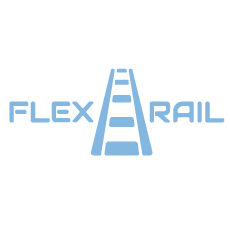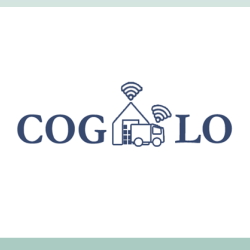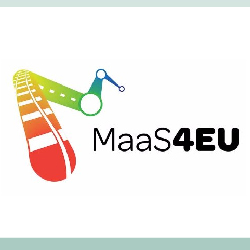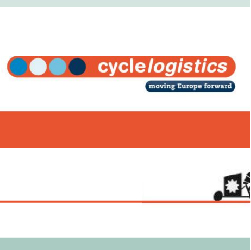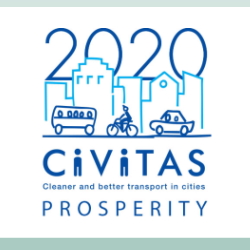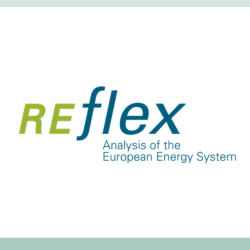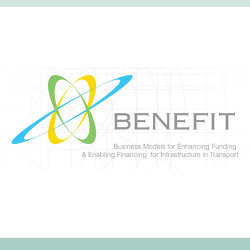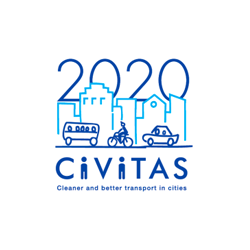- All
- African projects
- assessment
- assessment selected projects
- Assessment selected projects 2
- Assessment selected projects 3
- Assessment selected projects 4
- ASTRA
- Cost Benefit Analysis
- Electric mobility and ITS
- MOMOS
- planning
- planning selected projects
- planning selected projects 2
- planning selected projects 3
- planning selected projects 4
- planning selected projects 5
- projects
- Railways projects
- research
- research selected projects
- research selected projects 2
- research selected projects 3
- studies
- studies selected projects 1
- studies selected projects 2
- studies selected projects 3
- studies selected projects 4
- studies selected projects 5
- TRTingegneria
- TRUST
- urban mobility
- Flex-Rail – Paradigm shifts for railway – Technology uptake strategies for a lean, integrated and flexible railway system Shift2Rail (S2R, shift2rail.org) develops the building blocks for the future rail system, as envisaged in the Multi‐Annual Action Plan (MAAP). However, S2R’s work programmes need to be continuously monitored and updated to ensure that they optimally make use of the potential of new technological innovations and developments rising in the society, other industries and specifically within the rail sector. The Flex‐Rail project has the objective of identifying and assessing technological possibilities and innovative concepts that can shape rail operating and business models, aiming to contribute to the formulation of required paradigm shifts for the rail sector. In this view, Flex-Rail has the vision to target a lean, integrated and flexible railway system to stimulate further innovation of the rail sector and ensure that rail the services can address the future user needs. In particular, the Flex-Rail project addresses the following aspects: forecast the evolution of key fundamental technologies and identification of technical risks and potential blocking points; analysis of possible achievement of future impacts, through the definition and implementation of an impact assessment framework and modelling tool for rail scenario and transition pathways; formulation of technological concepts for a future rail system scenario developed on a participatory process involving the users of the rail system. Also, the scenarios build on the analysis of trends and innovations happening in other transport sectors; assessment of business feasibility and analysis of the current safety requirements. The Flex-Rail project develops an in‐depth overview of the state of the art of ideas and technological trends related to innovations of the transport industry and non‐transport sector technologies. As such, it constitutes a knowledge basis for subsequent activities focussed on (i) the definition of key performance indicators, which are key assessment components, (ii) the identification of gaps and development of future (rail system) transition pathways and (iii) the impact assessment of these transition pathways and scenarios. A dedicate interactive website has been created to explore technological trends an innovations relevant for rail transport(*). On these basis, a dedicated assessment framework has been designed to determine the impact of innovation packages and transition pathways on a number of key performance indicators for rail transport and per System Platform Demonstrator (SPD), as defined in S2R’s MAAP. A gap analysis for each SPD has been developed, considering the fulfilment of user’s requirements of rail and modal competitors and for different market segments. This has allowed to identify potential market segments and rail modal share growth. By evaluating such possible paradigm solutions, with aligning or enabling trends and technologies, future scenarios have been developed and assessed on the basis of an open-innovation process for collecting additional future requirements. Among its activities, Flex-Rail mapped projects, studies, initiatives and experts’ groups outputs related to new technologies and trends within and outside the transport sectors that may directly and indirectly have an influence on the rail transport sector. Mapping such these activities ensured coherence with the worldwide […]
- COG-LO – COGnitive Logistics Operations through secure, dynamic and ad-hoc collaborative networks The main goal of COG-LO, an innovative project on ICT logistics solutions funded by the European Programme Horizon 2020, was to create the framework and tools to implement cognitive and collaborative ICT solutions on future logistics processes, embracing many contexts and environments. By exploiting COG-LO, it was possible to achieve several benefits, such as: increase the load factor, reduce the cross-border parcel delivery costs, reduce the ratio between distance covered by the logistic vehicles and the number of pickups, implement quick adaptive response management to dynamic customer requirements. The project outcomes were validated in three different pilots, covering multi-modality, inter-country deliveries and urban logistics operations. The international partnership involved 14 public and private actors working both in transportation and ICT fields across eight European countries. TRT leaded WP2 (Cognitive logistics framework), capitalizing on its vast experience on freight transport and logistics research projects. It also brought its long experience in the field of quantitative analysis, strategic planning, KPIs assessment by supporting the technological requirements analysis in one of the pilots developed along the project (the EKOL case on intra-terminal operations and multimodality solutions). [tw_button icon=”” link=”https://www.trt.it/archivio-progetti/” size=”small” rounded=”false” style=”flat” hover=”default” color=”#223468″ target=”_self”]Projects[/tw_button]
- End-to-End Approach for Mobility-as-a-Service tools, business models, enabling framework and evidence for European seamless mobility MaaS4EU project’s objective is to explore the concept of Mobility as a Service (MaaS) which represents a radical change in the mobility sector. In this concept the mobility integrator (MaaS Operator) brings together differents mobility service providers (Mobility Service Provider) and provides the end-users with access to an integrated digital interface (MaaS4EU Mobility Platform), allowing them to plan and pay for their trips in a one-stop-shop. Maas4EU aim is to deeply analyze the possibilities for the implementation of the Maas concept and set the framework by defining sustainable business models that support the cooperation across transport stakeholders, understanding user needs and choices, implementing the required technological infrastructure and identifying the enabling policy and regulatory frameworks The project focuses in particular on the four key aspects related to: TRT’s activities within the MaaS4EU project mainly focused on supporting the design of the Business Models related to the 3 pilot projects. TRT analysed the legal and policy framework enabling the MaaS ecosystems. TRT was also responsible for the communication and dissemination activities of the project. MaaS4EU foresees 3 real life demos in the following areas: Budapest (Toll Service is the MaaS operator) (Urban & Cross-border trips) Greater Manchester (TFGM is the MaaS operator) (Urban & Intercity trips) Luxembourg (SLA is the MaaS operator) (Cross-border & Urban trips) For more information MaaS4EU – Pich presentation MaaS4EU – Brochure Final conference and video recording of the event Paper: Mobility-as-a-service: insights to policymakers and prospective MaaS operators Mobility as a Service (MaaS) and Sustainable Urban Mobility Planning – Topic Guides, Guidelines for developing and implementing a Sustainable Urban Mobility Plan (2nd edition) – Year 2019 Making European cities greener, Towards clean and smart mobility – Horizon 2020 – Year 2019
- Cyclelogistics Ahead – A key step towards zero emissions logistics in cities Cyclelogistics Ahead makes use of existing know‐how, guidelines and best‐practice examples developed by previous or on‐going EU projects focusing on urban freight delivery. Although many European projects have already produced a multitude of strategies on how to work towards zero emission urban logistics, these concepts and plans have rarely been implemented. Cyclelogistics Ahead proposes a unique solution to the above‐mentioned problems by using the successful bottom‐up approach from the Cyclelogistics project. In it, the active use of cargo‐bikes has started up zero emission logistics in cities, which then motivated stakeholders to initiate more ambitious strategies and implementations. TRT deals with the analysis of the state of the art and evolution of the cyclelogistics market in Europe. Through its subsidiary Triclò, tests services of food delivery and micro-consolidation in Milan (Italy).
- CIVITAS Prosperity – Prosperity through innovation and promotion of Sustainable Urban Mobility Plans The project, led by FGM-AMOR in a consortium of 26 partners, is funded by the EC H2020 research program and aims at innovating and promoting SUMPs in 12 European countries: Slovenia, Lithuania, Croatia, Cyprus, Czech Republic, Romania, Hungary, Bulgaria, Poland, Romania, Germany, Portugal. The PROSPERITY projects is developed along the following key activities: National Programmes – Strong involvement of national ministries or agencies to develop or improve national level programmes to encourage their cities to develop SUMPs; Living Labs – A support for partner cities to be living labs demonstrating to other cities how SUMP can be developed and implemented; Tools and Guidelines – Developments and improvements of tools and guidelines to provide advice and support to cities in their national context; Capacity Building – Innovative capacity building and training tailored to the needs and context of each country. TRT contribution to the project is mainly focused on training and capacity building activities related to tools needed to develop SUMPs, including the Urban Transport Roadmaps one. For more information: Innovation brief on city logistics solutions (Stefano Borgato, Giuseppe Galli, Simone Bosetti) Interview to Simone Bosetti, SUMP Ambassador: the transport planner and chair of the EU SUMP platform coordinating group, talks about recent experiences of the SUMP planning practice in Italian cities
- REFLEX, a project funded by the Horizon 2020 EU research program, focused on the analysis of the European Energy System under the Aspects of Flexibility and Technological Progress The core objective of the REFLEX project is to analyse and evaluate the development towards a low-carbon energy system with a focus on flexibility technologies in the EU to support a better system integration of Renewable Energy Sources. The project, lead by University of Dresden (Germany), identifies and assesses the most relevant low-carbon technologies and flexibility options in the mobility, heat and electricity sectors for a sustainable and cost-effective transformation of the European energy system. The analysis is based on a modelling system that considers the full extent to which current and future energy technologies and policies interfere and how they affect the environment and society while considering technological learning of low-carbon and flexibility technologies. In the REFLEX project TRT provides expertise in the analysis of the impact of flexibility and technology options on mobility and transport. Both diffusion of alternative technologies in the vehicle fleet and energy and transport policy measures have been considered to analyse the decarbonisation pathway in the transport sector. To this end, the ASTRA system dynamic strategic model simulates the transport system in linkage with the economy, the environment and the energy systems. It is therefore capable to represent long term impacts of transport policies not only on mobility but also on wider aspects such as economic growth or greenhouse gas emissions. In comparison to all other energy sectors, the transport sector increased its GHG emissions since 1990. These emissions need to be reduced by 2050 by at least 60% relative to 1990. Considering the continuous growth of passenger and freight transport demand, strong and timely responses are required at the policy level. Within the REFLEX project, a reference scenario (Mod-RES) and two ambitious policy scenarios (High-RES) are simulated with the ASTRA model (under consideration of global learning for batteries through coupling with the TE3 model) and flexibility potential provided for the electricity sector. Results indicate that a bundle of complementary measures (boosting transport system energy efficiency, supporting the electrification of road transport and promoting alternative fuels )is required to support and accelerate the transition. For more information Brochure Policy brief on Transport trends in the context of future energy scenarios Paper on Investigating the impact of e-bikes on modal share and greenhouse emissions with the ASTRA model. Detailed techno-economic assessment of low-carbon technologies focusing on flexibility options and applying bottom-up sectoral models and demand projection models of the heat, electricity and transport sector, download deliverable. Application of social environmental life cycle assessment (eLCA and sLCA) to analyse and compare environmental impacts, social risks and external costs due to life cycle-based environmental impacts related to the European energy systems for the three envisaged REFLEX scenarios, download deliverable. Document providing a short but concise overview of the main findings for the different sectors and a bundle of policy recommendations derived thereof. The book “The Future European Energy […]
- U-TURN – Rethinking Urban Transportation through advanced tools and supply chain collaboration The U-TURN project, funded by the European Commission as part of the strategic HORIZON 2020 program, aimed to identify new models for urban food transportation based on collaborative logistics, with the objective to reduce the environmental impacts of food deliveries in urban areas, providing new innovative low-impacts transport solutions. The project was developed by a consortium with European-wide coverage and involvement of top industrial, academic, consulting and technology partners to propose and test innovative business models to achieve more efficient operations – both environmentally and economically. During the project, a “smart” transport matching tool and a collaborative web platform were developed and tested by 3PLs, online retailers and local farmers to measure the impact of collaborative logistics practices. TRT, in addition to the research and methodological activity, led the Italian pilot case, focusing on the farms located around Milan, with the objective to optimise the transport distribution flows from the farms to the city centre through collaborative logistics solutions. Local food producers around Milan have a high preference for using their personal vehicles to transport goods rather than co-operating, therefore TRT proposed and tested, through the web-based platform, new collaborative business models addressing farmers’ requirements and actual challenges faced by the km-zero food market sector. During the project, TRT involved local farms and public stakeholders, driving the development of the pilot case, to demonstrate the opportunity to cut down travel distance, number of vehicles and their environmental impact, allowing the farmers to save time for their core business activity by introducing the collaborative logistics concept in rural areas. For more information Article “Logistica Collaborativa per le cascine milanesi“ (Collaborative Logistics in Milanese farmhouses) – September 2017 Article “La logistica tra le cascine milanesi” (Logistics in Milan farmhouses) – June 2017
- BENEFIT – Business Models for Enhancing Funding and Enabling Financing of Infrastructure In Transport BENEFIT developed an innovative approach by analysing funding schemes within an inter-related system and depending on their Business Model (described by a governance model). These were key elements in the transport infrastructure provision, operation and maintenance and the funding and financing schemes were analysed in this respect. This envisaging the transferability of findings with respect to the lessons learned, the limitations and the impact of the financial and economic crisis. The BENEFIT project took stock of over twenty years of EC’s funded, national and international research and received direct inputs from the OMEGA Centre and COST Action TU1001. BENEFIT undertook an ex-ante analysis and assessment of transport investments and related funding schemes, including innovative procurements. The BENEFIT project looked at infrastructure project delivery performance. Among various infrastructure project outcomes, it focused on four which are at the heart of the analysis of all major project stakeholders and which influence either directly or indirectly all other anticipated outcomes when a specific project is considered for financing (public or other): cost and time to (construction) completion and actual versus forecast traffic and revenues. The BENEFIT project investigated and researched the conditions and factors leading to the achievement of the above four outcomes distinctively from one another and remained stakeholder neutral, as it did not assume the perspective of any project participant. A key conclusion of the BENEFIT project was that transport infrastructure projects performance is rather independent from the financing scheme, as the conditions of improved performance were mostly related to the actual project characteristics and the competences of the involved parties, including in all cases the competence of the public contracting authority and the level of sharing of responsibility (risks) among the involved parties, also based on their ability to manage them. While, the implementation context (i.e., macro-economic conditions, country competitiveness, supporting institutions) was beyond the control of project decision-makers (i.e., exogenous to the project), and might have significantly influenced the project performance, there were other actionable factors (i.e., endogenous to the project) that might have been influenced by them. Each transport infrastructure mode was influenced differently by its implementation context and different combination of factors contributed in each case to achieving the respective target outcomes. The difference was primarily in the ability to fully endorse factors identified to support the achievement of the project outcomes. On the basis of selected indicators and synthesis of findings, the BENEFIT project developed a rating system describing the likelihood of a project to achieve at a certain point of its life cycle the expected targets (i.e., cost and time to (construction) completion and actual versus forecast traffic and revenues). Within the activities of the study, TRT led the research of the consortium to identify lessons learned.
- CIVITAS WIKI – Coordination and support action for CIVITAS PLUS II CIVITAS WIKI is the Coordination and Support Action for CIVITAS PLUS II, promoting and demonstrating integrated sustainable urban transport strategies to tackle negative effects of road transport in urban areas. 8 European cities are involved testing, evaluating and disseminating about 50 innovative measures for sustainable urban mobility. CIVITAS WIKI focuses on good practice exchange and dissemination of results and promotion of the CIVITAS Initiative. As a whole offers support to the demonstration projects of CIVITAS Plus II on the implementation, evaluation and dissemination of measures. TRT is specifically involved in the management of the CIVITAS Thematic Groups, whose main objective is fostering knowledge transfer, dissemination of best practices and debate about innovative measures for sustainable urban mobility based on the CIVITAS experience.

